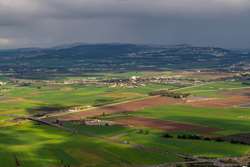
Why are the Property Rights of Israel’s Kibbutzim and Cooperative Villages Still Tantamount to Vassals?
Many of the victims of the massacre by Hamas on Oct. 7 were members of the communal (kibbutzim) and cooperative (moshavim) villages located next to the barrier from Gaza. An unexposed fact is that their land and housing rights and thus their household capital – even after several generations - are worse than under feudal landlords. This holds for such village across Israel. Our socio-legal-empirical research seeks to raise the veil from this archaic and unjust public policy which has become entrenched and blind. Without extensive legal and policy rethinking, the survivors returning to the villages after reconstruction will still have to live under a quasi-feudal land regime.

Assessing the Effectiveness, Economic Benefits, and Social & Economic Impact of Obesity Prevention and Reduction Reforms and Programs: A Comprehensive Review in Israel and Worldwide
This study, led by Neaman Institute and the Number Zone company headed by Nadav Caspi, investigates the intricate relationship between obesity prevention, socio-economic leadership, and gap reduction. Through an extensive examination of reforms, regulations, and intervention programs in four selected countries (England, Australia, Canada, and Denmark), chosen after a thorough literature review and in collaboration with experts from Joint-Elka and the Ministry of Health, the study aims to assess the viability of investing in community and national-level interventions for obesity prevention. Furthermore, a comprehensive evaluation of selected intervention programs from Israel and other countries was conducted, focusing on measuring their effectiveness through a rigorous ROI analysis.

Research and Formative Evaluation for a Health Program in Arab Society
The Ministry of Health, in partnership with the Authority for the Economic Development of the Minority Sectors seeks to promote a focused government program for the health of the Arab population in Israel. The program aims to provide "root treatment" for health conditions and disparities in healthcare services.

Benevolent community
“Benevolent Community – for Social Mobility, Community Resilience, and Quality of Life – in the 21st Century”

Winners and losers of the COVID-19 Pandemic in Israel and France: Evaluating the long-term effects of the crisis on well-being
The COVID-19 pandemic is a global watershed event that has substantially scarred the social and economic fabric of societies and individuals alike. The road to recovery from this pandemic is likely to be a gradual and slow process that will have an unequal impact on different parts of society. This proposed study sets out to identify, investigate, model and predict the factors associated with the objective and subjective well-being of the Israeli and French populations in the midst of the pandemic and in a world recovering from COVID-19. The assessment considers both material (i.e., socio-economic status, income and wealth) and socio-psychological conditions (i.e., feelings of subjective well-being, depression levels, family tensions), as well as underlying societal factors (resilience, social cohesion, social capital, degree of trust etc.). Special focus will be placed on the catalysts and agents, which differentially impacted vulnerable groups in society in the midst of the pandemic and on the factors that are projected to lead towards differential recovery. The comparison between Israel and France is especially interesting in terms of the potential “winners” and “losers” from the pandemic. An open question relates to both the contingent and structural elements of both societies and their ability to cope with the pandemic: France with its long-term stabilizers and social security system but slower epidemiological reaction or Israel with a less extended welfare system but with higher reactivity at the epidemiological level (a fast and effective vaccination campaign). The proposed project will employ a wide array of qualitative and quantitative tools for the collection and analysis of the research data. The French data will be based on the ELIPSS longitudinal survey, a probability-based panel. Similar data will be collected for Israel via a specially tailored web survey. In addition to survey data, unobtrusive digital trace data will be collected from human sources and online tools (e.g., webpage visits analysis, social network discourse analysis etc.). An innovative effort will be made to triangulate these unobtrusive data sources with the panel data and qualitative interviews. In order to test the relationship between socio-economic, behavioral and societal factors influencing the well-being and the coping abilities of the Israeli and French populations, mediation and moderation analysis will be implemented. The proposed bi-national project will equip stakeholders in both countries with well-established information that could help them in formulating guidelines for assisting vulnerable populations at times of crisis and speed up their recovery.
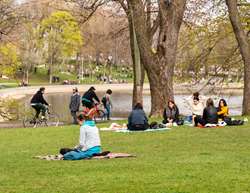
Well-being benefits by contacting with nature
The studies of the SNI in this field examine the contribution of nature to the mental and physical health of the residents of Israel. The studies examine the beneficial effect of exposure to nature, including staying in nature outside the city, visiting urban nature sites such as parks and urban gardens, and even viewing nature through windows or simply watching nature images. The studies examine the benefits that nature affects different populations, such as ethnic sectors, gender and different ages, and provide recommendations for measures that can be taken to increase the resilience of these populations, through exposure to nature and increasing awareness of its contribution to decision makers, executive bodies, health professionals, culture and sports, and among the general population.

‘Common Ground’: Agreed Road Map for Long-Term National Paradigms
A Strategic thinking process for the state of Israel is presented. The preliminary stage is based on interviews of 32 prominent Israelis, from diverse walks of life, we find a wide common ground in considering the ‘Declaration of Independence’ (1948) to be Israel’s ‘organizing principle’ for the coming decades. Updating the ‘rules of the game’ and broad sense of security are the needed enablers. The project leads to a process of re-consideration of paradigms in education, Jewish-Democratic state, moral market economy, ‘Mamlakhtiut’ - statehood, Israel in the Middle East, and foreign affairs.
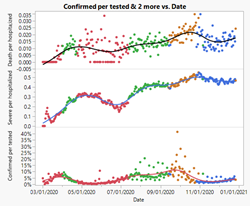
National resilience
The way the Covid pandemic has been addressed in Israel has raised significant issues regarding the decision-making process at the national, community and personal level. This project aims at addressing such challenges at the conceptual level. We propose a three tier approach addressing the national, community and personal level.

Arab minority participation in collective action
The societal and economic integration of the Arab minority is considered an essential factor for Israel. This research inquires how Arab minority members resolve the social dilemma of participation in collective action at the general society level. We use behavioral experiments methodology.

'Community and Career Center for Converters to Secularism' – Evaluation Study
This is an evaluation study, of the Formative Assessment nature, focusing on the program 'Community and Career Center for Former Haredim'. The program aims at creating a supportive community for lapsed Haredim, to diminish education and cultural gaps and to assist their integration within the secular society.
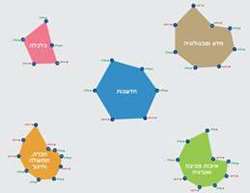
"Wheels of Life" in Israel
The "Wheels of Life" project was launched in 2013, in order to compare Israel's performance with the performance of other countries in five main dimensions of Israel's society: economics, innovation, science and technology, society-governance- education, environment, and energy. The data source used for comparative analysis is the World Competitiveness Yearbook of the IMD School of Management, a leading business school in Lausanne, Switzerland, which presents data on a wide range of global competitiveness variables in 60 countries.
_20190307161353.924.jpg?w=250&quality=60)
Excellence in Mathematics in the Ultra-Orthodox Community
This is an exploratory study, solicited by the Trump Foundation in Israel, aimed at the assessment of the potential for excellence in Math and Physics studies within the current Haredi Educational System. The study illuminates some of the recent transformations occurring in this regard, both within the Yeshivot of the Haredi men, as well among the Haredi women's education system, predominantly the Beit-Ya'akov schools. The report concludes by forecasting, cautiously, an imminent trend change towards a legitimate growing of excellence in mathematics among various sections in the Haredi society.

Proceedings of The International Conference On Privatization In Higher Education
The S. Neaman Institute is leading a movement for critical examination of the university of the future and higher education in Israel. In this context, in December 2004, the Institute sponsored an international scientific conference entitled "The Transition to a Mass Higher Education System - International Comparisons", in cooperation with the United States-Israel Educational Fund, which manages the Fulbright Program for student and faculty exchanges, and the ISEF Fund.

Evaluation of the Program Salary-Employment Advancement of New Immigrants
The current study was commissioned by the Ministry of Immigrant Absorption in cooperation with the Samuel Neaman Institute. The main goals of the research were: to identify the factors which affect the employment of immigrants at the conclusion of the period of assistance and in the course of time, examine the effect of running the program on the employment of new immigrants and formulate recommendations that could assist policy makers in improving the program.
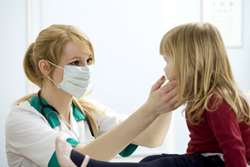
The Martin and Dorothy Kellner Health Promotion Program
The program will consist of a longitudinal field study in a medium-size Israeli town where an intensive and comprehensive program will be implemented on the individual, family, and community levels. The program falls in the realm of primary prevention which will focus on individuals at high risk for a physical disease, who have not yet been affected by the condition to be prevented.

Strategic Policies for Increasing Arab Women's Participation in the Labor Market
A significant problem facing the social and economic development of Arab society today is the low rate of Arab women's participation in the labor force. Only one fifth of Arab women participate in the labor force, compared to 60% among Jewish women in Israel. This low employment rate is reflected in the high poverty levels in Arab society where more than 50% of the Arab households live under the poverty line according to the 2008 statistics.
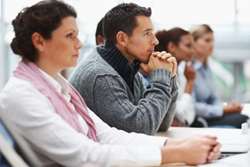
Vouchers for New Immigrants as Tools for the Job Market
The current study was commissioned by the Ministry of Immigrant Absorption in cooperation with the S. Neaman Institute, and examined whether the Vouchers Project was effective in facilitating employment and in upgrading the status of jobs held by the immigrants upon graduation.

Israel's Public Diplomacy (Hasbara)
The S. Neaman Institute, together with Israel Foreign Ministry, has initiated a project to develop a Public Diplomacy Plan (Hasbara) for the State of Israel. The project is based on the assumption that despite the ongoing exercise of public diplomacy by governmental entities and other authorities, there is a real need to periodically evaluate the contents and methods used, to redefine audiences and agents on the conceptual and strategic levels, and to check the actual level of activity.

R&D Project On Fighting Terror
This project is a joint effort of the Council for National Security and the S. Neaman Institute. In this project, various methods for supporting and enhancing R&D to combat terror are evaluated, integrating the private, government and defense sectors.

Higher Education Tuition Fee Policy in Israel
Higher education policy in Israel did not consider tuition fees as a major factor when developing strategic planning for higher education institutions in Israel. This study analyses the main factors influencing tuition fees in Israel and suggests a new model for tuition fees that includes compensation schemes for students.

Conditions For The Prosperity Of The State Of Israel
In 2004, the S. Neaman Institute established a research project to address the fundamental problems facing the State of Israel and the Jewish people. To that end, the Institute assembled a group of the country's top thinkers and researchers in different areas of expertise - philosophy, society, law, politics and technology

Science and Technology in Israeli Public Opinion
In early 2006, Prof. Ephraim Yaar of Tel Aviv University submitted the findings of a survey he conducted on "Science and Technology in Israeli Public Opinion", commissioned by the S. Neaman Institute. The survey examined different ways that the Israeli public relates to the place of science and technology in Israeli society.
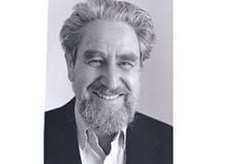
The Zvi Griliches Research Data Center
The Zvi Griliches Research Data Center was established in 2000 to encourage the study of empirical economic of Israel in issues related to the economy of research and development, the high-tech sector, innovation, human capital and productivity.
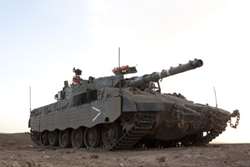
Economics of National Security Program (ENS)
The ENS Program was launched at the end of 2003 as an intermural research program aimed to initiate, encourage and support academic research on the mutual links between economic conditions and national security. Its main goals are to provide in-depth analysis of the economic costs and consequences of the Israeli security situation, the contributions of security and defense expenditures to economic progress, and to estimate the resources allocated to Israel's defense.
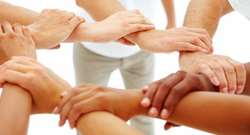
The Society and National Security
This program was initiated at the beginning of 2004 and ended in March 2005. The aim was to create a forum for the research of national security that will be an independent research group sponsored by the S. Neaman Institute.

"Israel 2020" to "Israel 2050"
The "Israel 2020" plan was profoundly affected by current planning practices. All of "Israel 2020"'s principles have been implemented in the National Outline Plan for Building, Development and Preservation, NOP no.35, that was approved by the Israeli National High Committee for Planning and Building and by the Israeli Government.

Israelis in Berlin: Community in the Making
In recent years, an increased immigration movement to Europe has been discerned, mainly to two cities, London and Berlin. This study examines the motives of migration, lifestyles, and perceptions of Israelis who emigrated to Berlin, in light of the special relationship between Israel and Germany.

Integrating the Ultra-Orthodox Population in the Israeli Economy
The Ultra-orthodox (U-O) Integration Project was inaugurated at the Samuel Neaman Institute in 2010, following the recommendations of the ”Israel 2028” Project. The goals of the UOI Project were to investigate the subject and provide recommendations as to how to enhance the participation of the U-O population in the labor market in Israel. During the last 5 years, the project team has produced a multitude of analyses on various aspects of the subject matter and has published numerous reports, which in turn had significant impact on the national policy in this area.
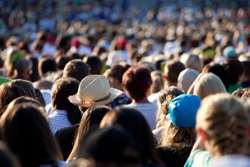
The People Israel Project -The Guide to The Israeli Society www.peopleil.org
"People Israel" is an online publishing house, which is a comprehensive textual and visual guide to Israeli society. The project was launched based on the belief that by providing current, rich, varied, and reliable information, along with a comprehensive analysis and interpretation of different phenomena, the publishing house would contribute to an in-depth knowledge about the various sectors in Israel, formulating effective public policy and a reduction in prejudices and stereotypes among the Israeli public, to encourage tolerance for others and give legitimacy to the wealth of diversity.

An Innovative Approach for Measuring the Digital Divide in Israel: Digital Trace Data as Means for Formulating Policy Guidelines
In recent years, the study of digital divide is becoming increasingly important for policy formulation, as well as the evaluation of policy and interventions. A wide array of qualitative and quantitative methods has been used over the years to measure the scope of the digital divide between countries and various populations groups and to identify the main factors affecting it. These methods include surveys, structured interviews, open questionnaires and indicator analyses. While very useful and important, these “self-report” methods are obtrusive and very costly, thus unreplicable.
_20190307173216.261.jpg?w=250&quality=60)
Mapping Agriculture R&D in Israel
The Science and Innovation Department of the British Council (through the British Embassy in Israel) has partnered with the Samuel Neaman Institute (SNI) in a joint project, the objective of which is to identify the relevant subjects in the area of Agricultural Science that have high synergy and high potential for cooperation between the United Kingdom and Israeli scientists.

Where is Chemistry Education Heading?
More than a decade ago, working groups at the Neaman Institute explored the future of the chemical industry in Israel. One of the four working groups focused on the question of education in chemistry. Under the leadership of Prof. Judy Dori, this group investigated the state of chemistry teaching in Israel and the future of chemistry education in Israel by interviewing and administering questionnaires to chemists, chemical engineers, academics, and teachers.

It Takes Two to Tango? Spatial and Social Implications of Joint Civil-Military Development
The study examined the impact of the IDF bases' relocation to the Negev on strengthening the urban regions in the Be'er Sheva metropolitan area. It was hypothesized that the relocation of military installations would become a major mechanism for strengthening the towns located in the Be'er Sheva metropolitan area, strengthening the Negev's urban sector and thus increasing social integration. The study examined this hypothesis, both qualitatively and quantitatively, based on a broad spectrum of collected data.
_20190307164548.381.jpg?w=250&quality=60)
The Israeli Generation Y Project
Generation Y is a stratum of secular young people born in the 80s and 90s of the 20th century. They grew up and were shaped in an era of commercial channels, the PC revolution, the Internet and the mobile phone, the development of the culture of feminism, civil rights and individualism, the economy of abundance and entrepreneurship, suicide attacks and the war on Muslim terror, leadership crisis, leisure and entertainment revolution, the normalization of travelling abroad, and the development of the broad Ashkenazi-Mizrahi middle class (reducing ethnic disparities). The impact of this generation on the Israeli society is enormous and its cultural profile raises many questions.

Grand Strategy For Israel
The Overarching Strategy Forum was established at the initiative of the former national security adviser to the Prime Minister and the head of the National Security Council, Prof. Uzi Arad.
_20190307162102.596.jpg?w=250&quality=60)
IDF’s Conscription Model: Examining Alternatives and Innovations
Our goal is to organize a Roundtable discussion, whose participants have expertise, knowledge and opinions on all aspects of military conscription – social, political, military, strategic, economic and psychological. In the Roundtable, a wide variety of opinions and positions will be expressed, on I.D.F. conscription and the volunteer army; innovations in this area will be discussed and various alternative policies will be presented. The Roundtable will provide informative useful material for a planned one-day Workshop conference, at which decision-makers and opinion leaders will participate. The S. Neaman Institute will prepare and distribute a report, at the conclusion of the Workshop.

The National Council for Civilian Space R&D in Israel
Dr. Gilead Fortuna’s appointment as a member of the National Council for Civilian Space R&D Committee in 2012 allowed the Samuel Neaman Institute to become more active and contribute significantly to the National Council for R&D. Furthermore, in 2012 there were three meetings of the committee, during which Dr. Fortuna was appointed to head the sub-committee that deals with R&D strategy in space.

Science and Technology Education Forum
The Forum for Science and Technology Education started its activities in 2013. The purpose of the forum is to establish and promote cooperation between different sectors in Israel in order to foster K-12 science and technology education. The Neaman Institute decided to focus on this topic due to the importance attributed to science and technology education in Israel for the future of the state and the need to increase the number of high-school pupils who choose to study these subjects on the AP level.